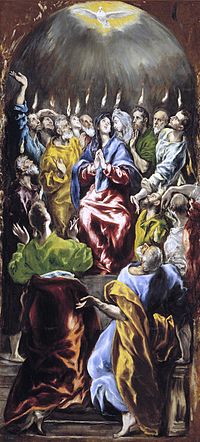This article has multiple issues. Please help improve it or discuss these issues on the talk page. (Learn how and when to remove these messages)
|

Cessationism versus continuationism involves a Christian theological dispute as to whether spiritual gifts remain available to the church, or whether their operation ceased with the apostolic age of the church (or soon thereafter). The cessationist doctrine arose in the Reformed theology: initially in response to claims of Roman Catholic miracles. Modern discussions focus more on the use of spiritual gifts in the Pentecostal and Charismatic movements, though this emphasis has been taught in traditions that arose earlier, such as Methodism.
Cessationism is a doctrine that spiritual gifts such as speaking in tongues, prophecy, and healing ceased with the apostolic age. The doctrine was developed in the Reformation and is particularly associated with the Calvinists. More recent development has tended to focus on other spiritual gifts, too, owing to the advent of Pentecostalism and the Charismatic movement that have popularised continuationism, the position that the spiritual gifts are meant for all Christians in every age.
Continuationism is a Christian theological belief that the gifts of the Holy Spirit, the spiritual gifts, have continued to the present age. Continuationism as a distinct theological position arose in opposition to cessationism, and is often manifested in advocacy of the recovery of spiritual gifts in the Church today, but also encompasses any tradition that does not argue the gifts have necessarily ceased.